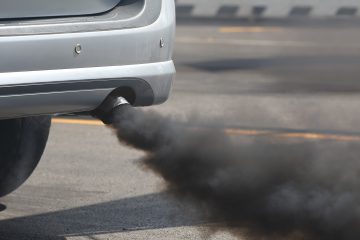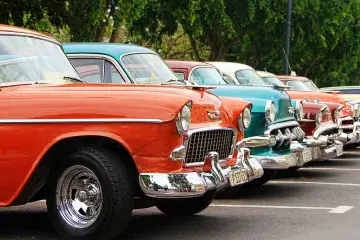As polling day edges ever closer, we look at key party pledges and how they affect UK motorists.
On July 4, voters up and down the country will be heading to the polls in order to cast their vote on which political party pushes through its policies that will help shape the future of the UK.
With key pledges on how to tackle the economy, health, the environment, immigration, housing and much more, the main party manifestos are understandably detailed and some of the most pertinent policies buried within the pages.
With that in mind, we’ve analysed documents provided by the Conservative, Labour, Liberal Democrats and the Green Party to highlight their key pledges to UK motorists and how each one plans to navigate the road towards greater electrification, improved infrastructure and reducing the financial burden on the modern motorist.

Conservatives
The Conservatives have long promised to ‘back drivers’, announcing its specific ‘Plan for Drivers’ last year, which included opening up bus lanes to motorists when not in use and making it legal for all motorcycles to use bus lanes.
There was also a promise of £30 million to upgrade traffic signal systems, replacing unreliable and obsolete equipment to improve reliability, as well as increasing fixed penalty notices to utility companies whose roadworks overrun to avoid unnecessary congestion.
The 76-page 2024 manifesto built upon this plan with the announcement that it would seek to reverse the London Mayor’s Ultra Low Emission Zone (ULEZ) expansion plans, ruling out top-down blanket Low Traffic Neighbourhoods and 20mph zones, stating that any new schemes would have to be put to a referendum.
On top of this, the party stated that it will remain against a pay-per-mile road tax model.
Despite a heavy focus from rival parties on electric (EV) and new energy vehicles (NEV), the Tories chose to largely ignore the subject and instead said it would cement its commitment to PumpWatch – a scheme that would legally require all fuel stations across the country to share real-time price information with an appointed organisation in order to give greater transparency win fuel prices.
Thanks to the scrapping of the second phase of HS2, the Conservative Party said it would invest £36 billion in ‘local roads, rail and buses to drive regional growth,’ which would include an £8.3 billion fund to ‘fill potholes and resurface roads’.
RAC head of policy Simon Williams said: ‘Although the previously announced £8.3 billion of reallocated HS2 funding for resurfacing 5,000 miles of local roads is welcome, it’s important to realise this only represents 3 per cent of all council-run roads in England.
‘Spread over an 11-year timeframe, that funding sadly doesn’t scratch the surface of country’s pothole problem. We would have liked to see a commitment to ringfencing some general taxation to pay for local road maintenance, which would give councils the ability to plan long-term programmes to bring their roads back up to a fit-for-purpose state.’

Labour
The Key takeaway from from the 2024 Labour Party manifesto was that it would reaffirm its commitment to the ban of new petrol and diesel cars by 2030 in a bid to increase the adoption of electric vehicles – a scheme that was postponed to 2035 under the Conservatives.
Accelerating the rollout of electric vehicle charging points is also high on the Labour Party’s agenda, as well as supporting buyers of second- hand electric cars by ‘standardising the information supplied on the condition of batteries’.
This could come in the form of a mandatory ‘battery passport’ scheme, something the EU will implement by 2027 and one that the likes of Volvo and other Chinese EV makers have already adopted.
The scheme would require all new electric vehicles to arrive with easily accessible information on the origins of raw materials, the amount of recycled content and the vehicle’s overall carbon footprint, as well as easy to access data on the health of the battery pack.
Labour also pledges to fix an additional one million potholes across England in each year of the next parliament, funded by deferring the A27 bypass, which the party says is ‘poor value for money’.

Liberal Democrats
The Lib Dems arguably focussed more than any other party on electric vehicles and helping to smooth the transition to new energy vehicles. Its 117-page manifesto stated that it will cut VAT on public charging to 5 per cent, effectively reducing the cost of topping up EV batteries via the public charging network.
The Lib Dems will also require all charging points to be accessible with a bank card, as well as roll out ‘far more’ charging points, including residential on-street points and ultra-fast chargers at service stations.
RAC head of policy Simon Williams said: ‘The promise to end the VAT charging disparity is particularly welcome, as currently those charging at home pay just 5 per cent in stark contrast to those using public chargers who are hit with a 20 per cent rate.
‘This is something we, along with the FairCharge campaign, have long been calling for as it creates an unnecessary barrier to switching to an EV for those who can’t charge at home.’
Similarly to Labour, the Lib Dems will also reverse the delay of the petrol and diesel ban, bringing it back to its original deadline of 2030. This will be assisted by ‘reintroducing the plug-in car grant’, although the party didn’t go into detail about how much this will be or how the policy would be funded.
Finally, should Lib Dem leader Ed Davey be elected, his manifesto promises to support the introduction of new charging points with an upgraded National Grid and a step-change in local grid capacity to ensure it can cope with increased demand.

Green Party
Not surprisingly, the Green Party manifesto looks to ‘shift the transport system away from cars and roads’ in a bid to reduce carbon emissions.
As a result, Green MPs have pledged to restore the fuel-duty escalator, which would push the price of petrol and diesel up, as well as introduce road-pricing that would see Road Tax based upon the wight of the vehicle.
What’s more, the Greens have said they will oppose all new road building plans and bring forward the ban of all Internal Combustion Engine (ICE) cars to 2027.
To ensure this policy runs smoothly, the party has also stated that more government support is needed for ordinary car users and small businesses to replace their vehicles as diesel and petrol engines are phased out. Although the manifesto didn’t lay out specific budgets, initiatives or timelines.
Instead, money would be committed to new cycleways and footpaths, built using sustainable materials (£2.5 billion a year), with a frequent flyer levy on those that take regular flights helping to fund sustainable initiatives.
Finally, the Green Party takes an opposite stance on speed limits to the Conservatives, pledging to commit to 20 miles per hour to be the default speed limit on roads in all built-up areas, allowing children, the elderly and disabled people to walk and wheel safely.




0 Comments